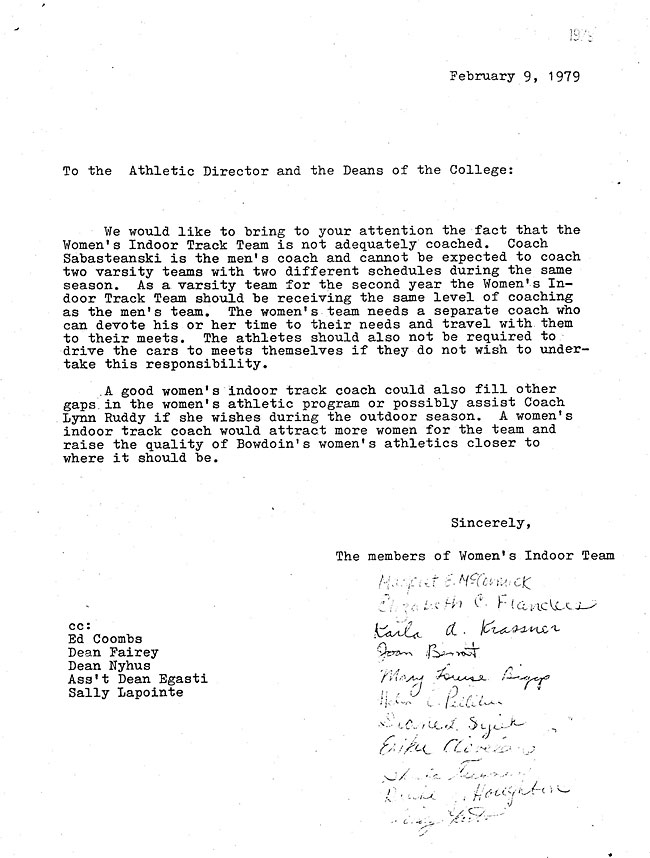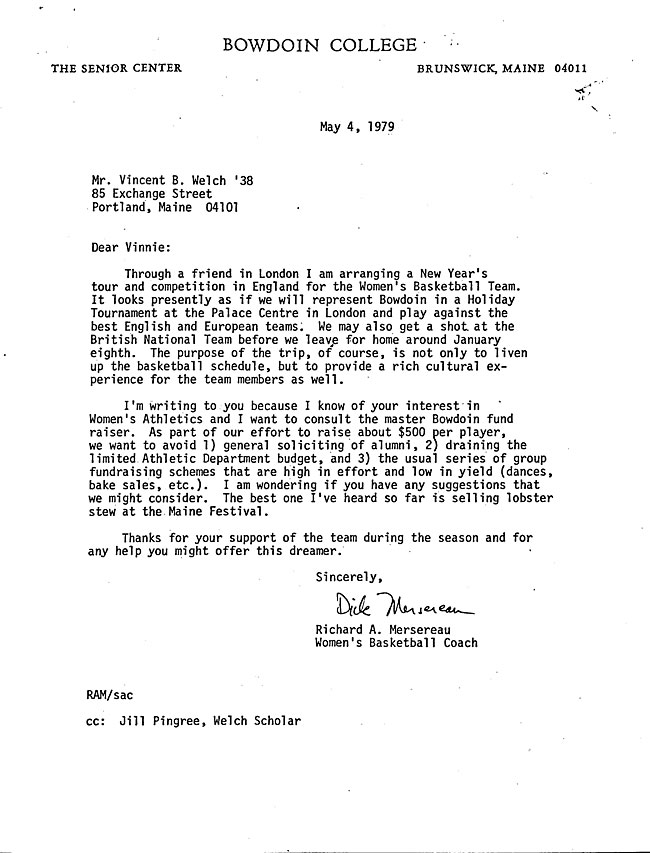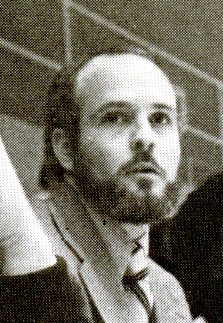The following series of documents represents requests made by women’s sports teams during the late 1970s. Evidence from the letters shows that concerns that emerged in LaPointe’s 1977 review of women’s athletics remained unresolved but that women athletes, and coaches of women continued to ask for support.
The women’s indoor track team wrote the first letter to the Athletic Director and the Deans of the College on February 9, 1979 (Document JH, 59.1). The team suggests that the men’s coach, Frank Sabasteanski, possessed too much responsibility in coaching both teams. In addition, they argue that a women’s coach would be more appealing for female students, and would also be able to work in other areas of the athletic department. The letter demonstrates the team’s desire for equality between men and women’s teams. Members of the team signed the letter and carbon copied Athletic Director Ed Coombs, three deans, and Sally LaPointe, the first female coach at the College.
A response, written on March 5, 1979, to Athletic Director Coombs from Dean Paul Nyhus (document available in Special Collections at Bowdoin) insisted that Coombs reply to the team and fulfill their request by the upcoming (1980) school year. However, today, forty years later, there is still one coach for men and women’s track, Peter Slovenski.
Richard (Dick) A. Mersereau (see interview, Part 2, 00:05:50), volunteer women’s basketball coach, wrote the second letter on May 4, 1979, to Vincent (Vinnie) B. Welch, a member of the Bowdoin class of 1938 (Document JH, 59.2). Mersereau requests that his team travel to London to play against European teams. Not only would this experience give his players a different type of competition to improve their skills, but it would also “provide a rich cultural experience.” Mersereau calculates the cost of $500 per player, and directs his request to Welch, a supporter of women’s athletics at the College, and, according to Mersereau, a successful fundraiser. Before closing the letter, Mersereau commented, “Thanks…for any help you might offer this dreamer,” suggesting he has little confidence that any women’s sports team at that time would be approved to do something as far-fetched as traveling to Europe.
Ten days later, on May 14, 1979, Welch forwarded the letter to C. Warren Ring, Vice President of Development at the College, who then sent a letter to President Enteman on May 18, 1979 (documents available in Special Collections at Bowdoin). Paralleling Mersereau’s dreamer quotation, Ring writes, “Mr. Welch, quite understandably, does not know how to answer Mr. Mersereau’s request.” Ring offers many questions that, in his opinion, need to be answered before taking further steps in planning a trip to London. The letter does not offer any conclusions; however, an interview with Mersereau revealed that a lack of funding did not permit the team’s trip.


